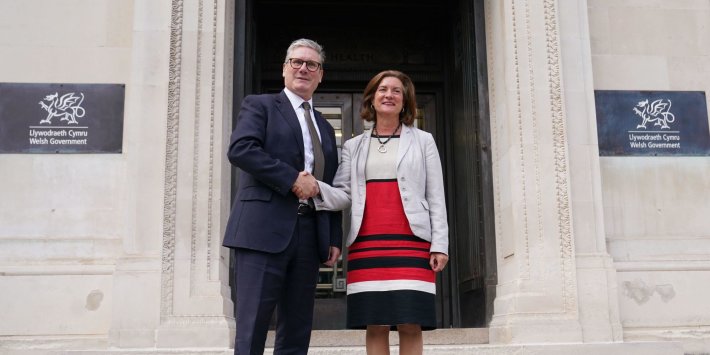
Prime Minister Keir Starmer meeting First Minister of Wales Eluned Morgan during a visit to Cathays Park in Cardiff, 19 August 2024 (PA Images / Alamy Stock Photo)
10 min read
Here be dragons? With the introduction of ‘pure PR’ and the rise of Reform, the next Senedd election looks set to take Wales into uncharted territory, reports Sienna Rodgers
“You say ‘Welsh Labour’ and people just go, ‘ugh’,” says a Welsh Labour MP. “I’ve got a lot of time for Eluned Morgan. If anybody can do it, she can. But is it an insurmountable task?”
With the departure of first minister Mark Drakeford followed by the short-lived Vaughan Gething era, which ended with a no-confidence motion and mass resignation of cabinet ministers, 2024 was not smooth sailing for the Labour government in Wales.
It is now led by Eluned Morgan, a peer (on leave of absence) and former MEP who is well-liked across the party and seen as a good choice to steady the ship. Soon after becoming First Minister in August, she met with Keir Starmer to “reset the relationship” between the UK and Welsh governments.
Some in Welsh Labour feel they have been ignored in recent years, not just by the UK government but by their own party at a UK level, with Scottish Labour getting more attention. A key factor is that the former has been more successful, having won every Assembly and Senedd election since 1999, but the aggrieved also say the latter has been seen as the “sexier” of the two autonomous units of UK Labour.
Welsh representatives now warn that the UK Labour leadership is heading for a rude awakening at the next Senedd elections on 7 May 2026. Recent polls show Labour level with – or even slightly behind – Plaid Cymru, which currently has 12 Senedd members (MSs), compared to 30 Labour and 16 Tories. Labour is also level with Reform UK, which has no MSs and just three councillors in Wales; support for the Conservatives has collapsed.
People are feeling very let down by Keir
“We’re 18 months away from Senedd elections. We’ve got a Labour government elected now, which we are working with far more effectively than we were able to with the previous Conservative government. That’s beginning to make a big difference,” says Mick Antoniw, Labour MS for Pontypridd.
“Of course, the other side of that is a lot of media attention where you’ve had issues around the winter fuel allowance, the farming inheritance issue and so on. Politics is incredibly volatile.”
Getting the most electorally difficult policies out of the way early in a UK Labour government’s term is unfortunate timing for the party in devolved assemblies, where elections are being held mid-term from a Westminster perspective. The two big controversies around winter fuel payments and inheritance tax paid by farmers are particularly challenging in Wales, where there is an older population and a strong farming sector.
Running on a “change” platform would be tough in Wales, where Labour has always governed, one of Welsh Labour’s new MPs points out. Instead, the message to Welsh voters in 2026 will be that “having a Labour government at both ends of the M4 is important”.
The rows between devolved administrations and the UK government have been fierce in recent years. “Surely it’s better for Welsh Labour to suck up to the UK than have the governments clashing,” the MP says. “That’s why it’s so important we deliver. It’s all about delivery.”

Others worry that double incumbency will see the international trend of voters punishing incumbents hit Labour hard in Wales. “People are feeling very let down by Keir,” says the first anonymous Welsh Labour MP, adding: “Welsh Labour is a complete shitshow.”
“It’s like Brexit all over again, isn’t it? Kicking back against the system,” they continue. “The Reform thing is real. We need to seriously, seriously, wake up to it.” The MP predicts that in areas like Llanelli, where Reform came just 1,500 votes behind Labour in July, “we are absolutely doomed”.
Reform UK does not yet have offices in Wales, but the party says it does now have a branch in every constituency. According to a Labour source, and confirmed by Reform UK, Reform members and branch officials have also been volunteering in food banks and getting involved in grassroots community work.
It is a reminder, a Reform source says, that Nigel Farage’s party is not as economically right-wing as the Conservatives – notably supporting the abolition of the two-child benefit cap in the last general election.
While keenly aware that the South Wales Valleys are fertile ground, Reform believes it can come in at every political angle to take votes from competitors. Its plan for electoral success will rely on the toxicity of the Conservatives’ brand in Wales after their record in Westminster, and an attack on Labour highlighting its perceived weaknesses over 27 years of government in Wales – from standards in education and NHS waiting lists to child poverty, light pay packets and the unpopular 20mph speed limit.
“Chaos and poor results,” is how they sum up Labour’s record. Reform insiders believe the story of the night in May 2026 – if current polling stays true – will be Wales rather than Scotland.
Kanishka Narayan, the new Labour MP for the Vale of Glamorgan, is more upbeat than some of his colleagues.
“Reform had no specific ideas to tackle any of the concerns that people raised with me. Most of the Reform campaign was about the cult of the Member of Parliament for Mar-a-Lago, rather than the individual candidate in the Vale of Glamorgan,” Narayan says.
“As we shine more of a light on the fact that this is largely an organisation led by a primary shareholder, rather than anyone who actually lives and understands Wales, I think the people of Wales will recognise it for what it is.
“I feel, actually, that we can try and win the argument not on the basis of the rigour of policy – because Reform will avoid that altogether – but instead just on the authenticity of the leadership.”

The MP says the new First Minister’s “style” has given them hope. Morgan has increased collaboration with the Welsh Parliamentary Labour Party (PLP), meeting them within days of taking office and twice subsequently, he reports. “The level of engagement between MSs and MPs is vastly higher. We’re all talking to each other a lot more, and the party as a whole feels very focused on the challenge ahead.”
There is consensus on Reform presenting an electoral threat to Labour. Perhaps the vulnerability that elicits the strongest responses among Welsh representatives, however, is the change in the voting system.
Under a flagship reform pioneered by Drakeford, from 2026 the Senedd’s size will be increased from 60 to 96 members, and Welsh elections will be held using a purely closed-list system of proportional representation (PR). Parties will put up lists of candidates for each of the 16 new large constituencies, which will elect six MSs, and voters will vote for parties rather than individual candidates.
“The outcome of the election will be far more representative as to how people actually vote,” says Antoniw. “From the Welsh Labour perspective, I don’t think we have anything to fear from that. No party has ever had a majority of votes in the Welsh Parliament. It has always been dependent on forming co-operation pacts or alliances of one sort or another.”
Others disagree. “It’s ironic: Mark Drakeford’s legacy is the one that’s going to ruin us,” says the same straight-talking Welsh Labour MP previously quoted. “You’re voting for the brand, so that will work for Reform.” Indeed, The House understands Reform UK is delighted by the new system.
This is probably the first time in history a political party has brought in an electoral system to stop themselves winning
Mike Hedges, Labour MS for Swansea East, is pleased that candidate names will now be on the ballot papers (initially the plan was only to include party names, which could remove any Labour candidate’s incumbency advantage altogether). But he is still damning about the switch to full PR.
“This is probably the first time in history a political party has brought in an electoral system to stop themselves winning. Political parties are normally accused of gerrymandering and trying to create the system by which it will benefit. This is the exact opposite,” says Hedges.
“It’s a system which is brought in on the ‘all must have prizes’ philosophy that will make sure every political party gets people elected,” he adds. “Some of those who support it – and they actually believe it – say if you have a hung Senedd the political parties will want to work together, and people will make compromises. You can’t compromise with Welsh nationalists because they’re not interested in compromise!”
What, then, could actually materialise as a viable Welsh government after the May 2026 elections?
The first possibility is the one that has always emerged thus far: Labour governing as a minority or entering a coalition with the Liberal Democrats or Plaid Cymru. The alternative is the unprecedented situation in which some combination of Reform, Plaid Cymru and/or the Conservatives team up. “The Conservatives will vote for anybody to move us out of power. A large Reform block will not know what they’re doing, but will probably vote against us. And we’d be the largest party, but not in power,” explains Hedges.
But is a Tory-Reform-Plaid alliance likely? “They will have the numbers to govern at the next election. There’s no doubt about that. Whether they can actually work together is another matter because Reform and Plaid Cymru have different views on most things, including Welsh independence,” the MS replies. “Giving more money to farmers is something that all three of them would agree on.”
Antoniw is optimistic that there is little chance of Reform being able to build alliances, saying: “Probably the only party that might consider it, and I think that is even very questionable, are the Conservatives. Certainly, I could not see Plaid Cymru, which has a more social democratic ideology underpinning it, or the Lib Dems, having anything to do with that.”
While Plaid Cymru is usually regarded as a progressive party, they are also sometimes nicknamed “Daffodil Tories”. One Labour MP who says they are “hard to pin down politically” highlights that new leader Rhun ap Iorwerth is deemed to be more centrist than predecessor Adam Price and is also “an operator” who will approach it strategically. In that vein, he may find a confidence and supply deal more appealing than coalition, the MP adds.
Meanwhile, Reform will not say at this stage what kind of agreement it may be willing to enter, preferring to point out that Farage is the most popular party leader in Wales (according to a recent Barn Cymru poll) and that – as he says – “the sky is the limit” for Reform. For now, Farage simply wants to secure as many Senedd seats as possible.
Can Hedges identify any source of optimism? “That we don’t agree the boundaries and that we have the election on the current system,” he says.
And is that likely? “It’s very, very improbable, but it’s still possible. Otherwise, we’re set for a number of chaotic years of unstable government, which will almost certainly be followed by a bigger and bigger push to ‘abolish the assembly’ because it’s not working.”
According to this MS, it is not only Labour’s historic governance of Wales at stake but devolution entirely.
PoliticsHome Newsletters
PoliticsHome provides the most comprehensive coverage of UK politics anywhere on the web, offering high quality original reporting and analysis: Subscribe





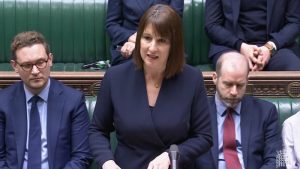









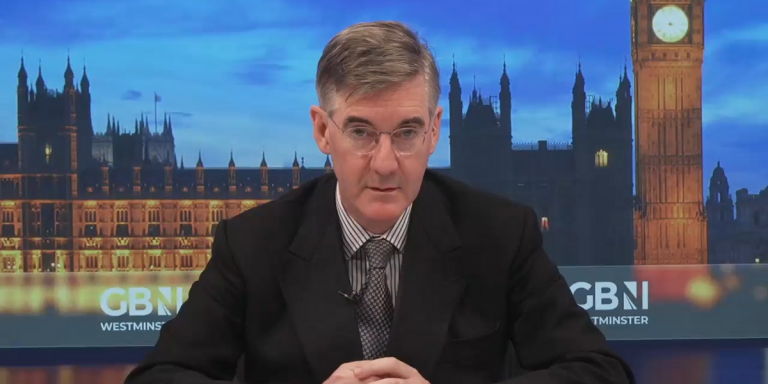
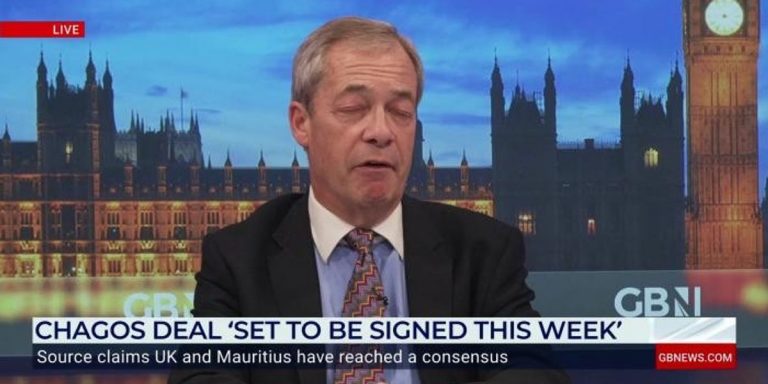
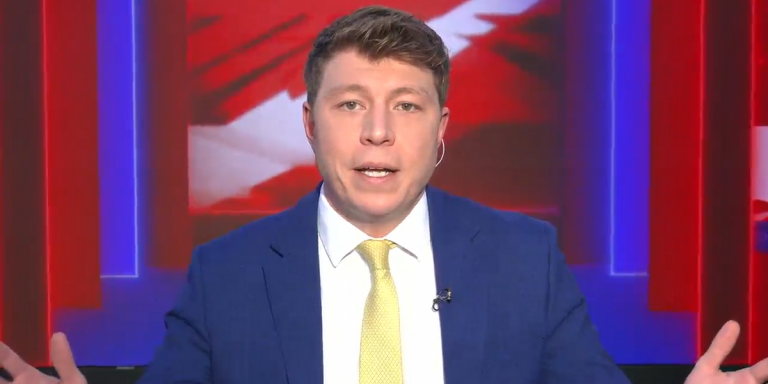





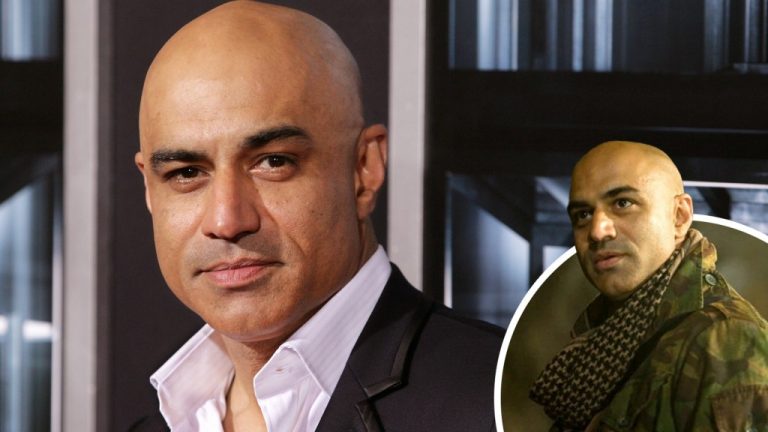

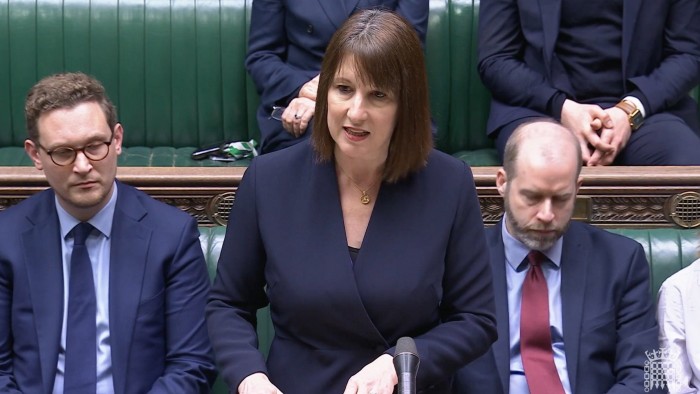

+ There are no comments
Add yours